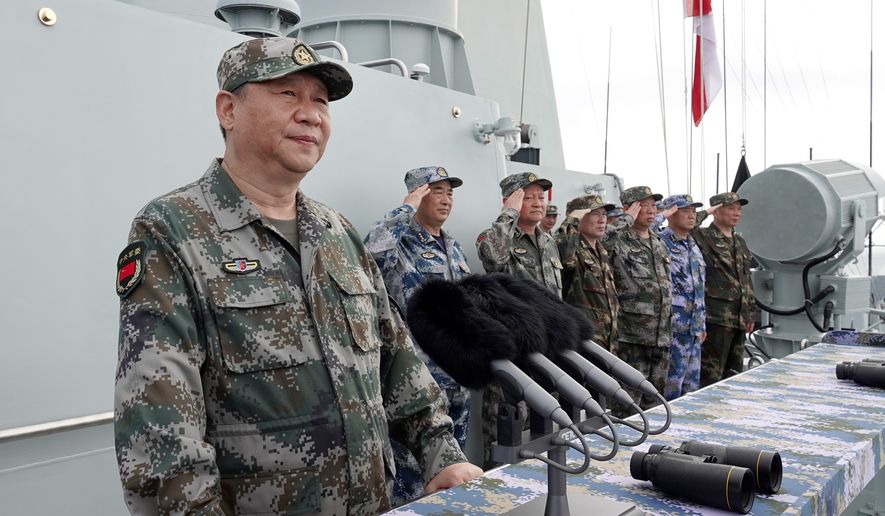China’s Defense Ministry lashed out anew Wednesday over Washington’s deployment two years ago of a sophisticated missile defense system to South Korea, asserting in a major new strategy white paper that the move “severely undermined the regional strategic balance” in Northeast Asia.
In its first major outline of Chinese defense priorities since President Xi Jinping came to power more than six years ago, Beijing also said it was determined to prevent “Taiwan independence” and to combat separatist forces in China’s far west Xinjiang region, as well as in Tibet.
But the document focused heavily on the challenge from the U.S., claiming Washington has “adopted unilateral policies” in national security and defense that have “provoked and intensified competition among major countries.”
The U.S. has “significantly increased its defense expenditure, pushed for additional capacity in nuclear, outer space, cyber and missile defense, and undermined global strategic stability,” the white paper said. With arms control pacts weakening, terrorist movements still a danger, and crisis spots such as Iran and Syria defying easy solution, “No country can respond alone or stand aloof,” the document said.
There was no mention of any specific U.S. administration in the document, which separately asserted that NATO has “continued its enlargement,” while Russia too is “strengthening its nuclear and non-nuclear capabilities for strategic containment.”
The Trump administration and the Pentagon did not immediately respond the white paper Wednesday. However, the document, which is the 10th such defense priorities outline that Beijing has released since 1998 — and the first since 2011 — comes just months after U.S. military officials issued their own assessment of China’s growing military might.
A January report by the Defense Intelligence Agency argued that China’s military is closing the gap with the U.S. and that Beijing has an increasingly internationally-focused defense strategy.
The goal of China’s military buildup is to “impose its will” across Northeast Asia, senior DIA officials said at the time, stressing that Washington’s biggest concerns stem from the possibility that Chinese officials might suddenly embrace a strategy of using military force to achieve their goal of eventually reclaiming control of Taiwan.
Beijing’s new white paper insisted China will not renounce the use of force in efforts to reunify Taiwan with the mainland and vowed to take all necessary military measures to defeat “separatists.”
On a separate front, the white paper published Wednesday defended China’s actions with regard to disputed waters in the South China Sea. U.S. officials have expressed anger over China’s construction during recent years of military facilities on human-made islands in the region, facilities the white paper said represented “necessary defensive capabilities.” The document seemed to downplay the notion that China is eager to actually use military force in the sea disputes. “China is committed to resolving related disputes through negotiations with those states directly involved on the basis of respecting historical facts and international law,” it said. “China continues to work with regional countries to jointly maintain peace and stability.”
But Chinese officials showed little restraint criticizing Washington’s 2017 deployment of the Terminal High Altitude Area Defense system to South Korea, asserting the move “has severely undermined the regional strategic balance and the strategic security interests of regional countries.”
— This article is based in part on wire service reports.
• Guy Taylor can be reached at gtaylor@washingtontimes.com.




Please read our comment policy before commenting.